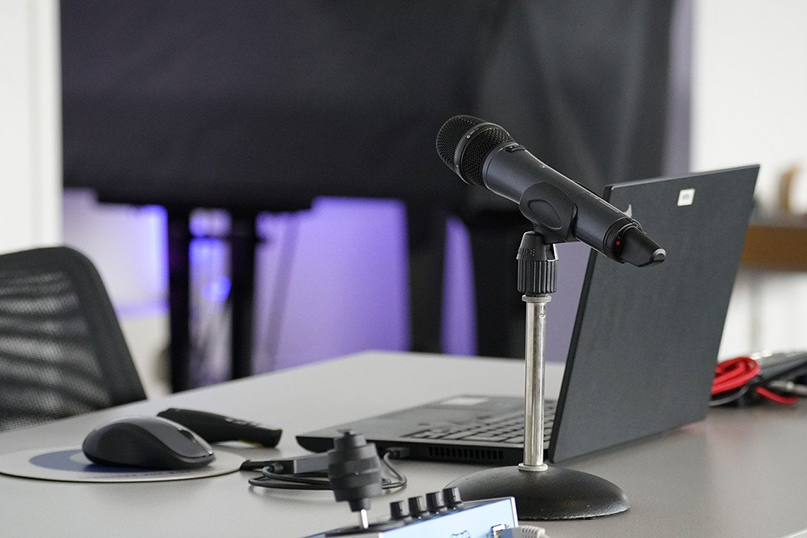Have you ever heard a lawyer say they didn’t want to take a potential witness’s deposition because that witness was “bad for the case”? Or maybe because the witness was “in the tank” for the other side? Many lawyers are reluctant to take a deposition when they’re concerned they won’t like what the witness has to say. This is the wrong approach. If the witness will potentially testify at trial, you need to know what they’re going to say. If you lock them into their story during discovery, they won’t be able to surprise you at trial. Additionally, you can use the materials you gather in discovery to try to challenge their story. That’s only possible when you know what they will say at trial.
Avoiding getting their testimony on the record does you no favors. Yes, it means that on summary judgment the other side might be able to point to some testimony to dispute your version of the facts, but they would have just done the same thing by filing a declaration from that witness. With the deposition, your attorney gets to ask the questions. You get to test their credibility and demeanor, you get to find the weaknesses in their case as well as your own. If the other side instead gets to rebut your motion with a declaration, they only show you what they want to show you, putting you at a major information disadvantage.
Regardless of whether that tough witness presents poorly at the deposition, suggesting they will not make a good impression with the jury, or if they come across like a potential star witness in the case against you, the knowledge you gain will be vital for preparing your best case at trial.
Tips to Get the Most Out of the Tough Deposition
Even if you are convinced that it is worthwhile to take that deposition of the difficult witness, you need to be certain your attorney is using the right strategies and tactics to make the most out of the opportunity. Particularly on behalf of a defendant, a good attorney knows how to use the deposition to “learn, but not teach.” In other words, they use the deposition to gain as much information about the other side’s case as possible while not revealing too much of their own strategies. Much of this comes down to the choice of questions to ask. If a line of questioning gives too much information about your themes or theory, or which pieces of evidence you view as most important, the deposition becomes an opportunity for your adversary to learn how you intend to try the case.
Additionally, your lawyer needs to be persistent in locking down the witness’s testimony. It’s important to exhaust each important line of inquiry, leaving no room for the witness to change their story at trial. If the witness repeatedly says they don’t remember, your lawyer should ask what they could use to refresh the witness’s recollection. Are there helpful documents they could review to help them recall? Locking the witness into their story is critical for making sure they don’t come to trial and say something entirely unexpected.
Your lawyer must also not shy away from the questions they won’t like the answer to. It’s natural to avoid unpleasantness and to sidestep subjects when we know we’re not going to like what someone has to say, but a lawyer needs thick skin to take a good deposition. For example, if the other side has accused you of dishonest or dangerous behavior, your lawyer should be demanding to know the specific facts the other side claims supports its position. Learning the answers in discovery, even when they seem terrible, will allow your attorney to prepare the right questions at trial.
This same rule holds true for questions where you don’t know what the witness is likely to say. If the discovery materials leave gaps in your knowledge and you’re not sure what a witness’s response to certain lines of inquiry will be, you need to figure that out through the deposition. If your attorney can get the witness to speak at length in response to the questions, you’ll have a very good idea of what the witness will say on direct examination in court, which is essential for your trial preparations.
Finally, the deposition is a chance to learn how the witness will present. Are they generally likeable? Do they seem honest and trustworthy? Are they impatient, combative, or defensive? Can you establish motivations for bias on the part of the witness? These clues into how the witness is likely to behave in front of the jury are invaluable for formulating questions for cross examination at trial.
Conclusion
A good deposition of any witness, whether the other side’s expert, a neutral third-party, or the opposing party themselves, is the most important building block for preparing the examination of that witness at trial. Deposition preparations must be done with the trial examination outline in mind. For a thoughtful and well-prepared attorney, a deposition is a critical opportunity to build out the trial strategy. That’s why a great trial lawyer doesn’t shy away from depositions just because they expect they won’t like what the witness has to say.
At Keller/Anderle, our teams of top trial lawyers and seasoned civil litigators have mastered the art and science of taking great depositions. We know that courtroom battles are often won or lost well before the opening statements are ever given. And those wins often come in no small part from fearlessly taking those tough depositions.

